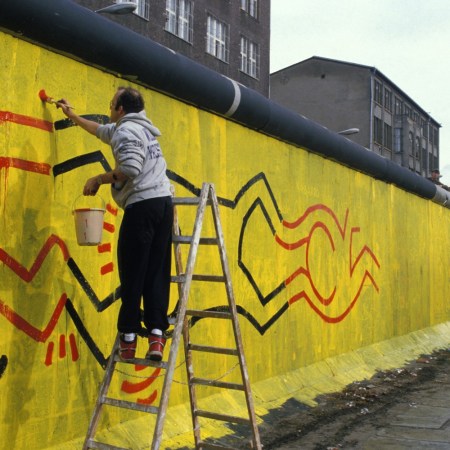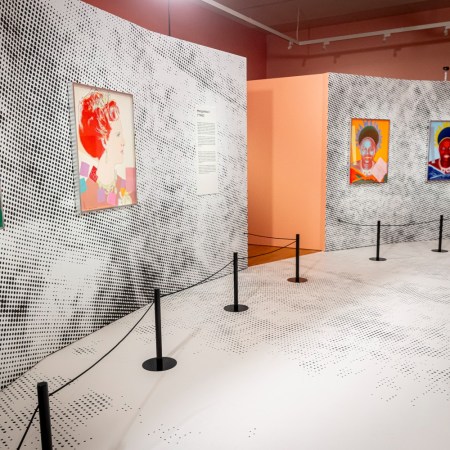If you’ve researched accounts of some of the 20th century’s most high-profile trials — from Charles Manson to Sirhan Sirhan — you’ve probably seen the work of Arnold Mesches. It’s also possible that you saw his work on display at a renowned museum like MoMA PS1. Some artists take teaching jobs to pay the bills; Mesches spent time creating courtroom sketches for Walter Cronkite at CBS. If that sounds fascinating, it’s only part of Mesches’s life story — he was also a political activist who found himself under surveillance by the FBI for decades.
At CrimeReads, filmmaker Alix Lambert explores Mesches’s complex life and artistic legacy. Lambert makes the case for the societal importance of courtroom sketches, and why it’s important to have someone who can blend artistic skill with speed, as Mesches could:
The courtroom has remained one place where the utility of drawing plays an important role in civic responsibility and judicial process. With no cameras allowed inside most courtrooms, the drawings illustrate what would otherwise be invisible to the public.
It was through a different trial — in this case, a series of paintings inspired by the trial of Julius and Ethel Rosenberg — that Mesches landed on the FBI’s radar. “Mesches, not yet thirty at the time, protested their execution, because he both believed in their innocence and was strongly against the death penalty,” Lambert writes. “His protest took the form of a series of 30 paintings.”
In 1956, his studio was broken into; all 3o paintings were stolen. Years later, Mesches requested and received his file from the FBI. He then used this as the basis for a new series of paintings, The FBI Files, which have been hailed for anticipating an entire subgenre of contemporary art.
Mesches died in 2016; his obituary at Artforum presents an impressive list of accomplishments. He also shows up in the 1970s science fiction film Escape From the Planet of the Apes playing — what else? — a courtroom sketch artist. Many artists have used politics and law as the raw material for their work. Few did so to the extent that Arnold Mesches did — or to such powerful effect.
Subscribe here for our free daily newsletter.
Thanks for reading InsideHook. Sign up for our daily newsletter and be in the know.


















